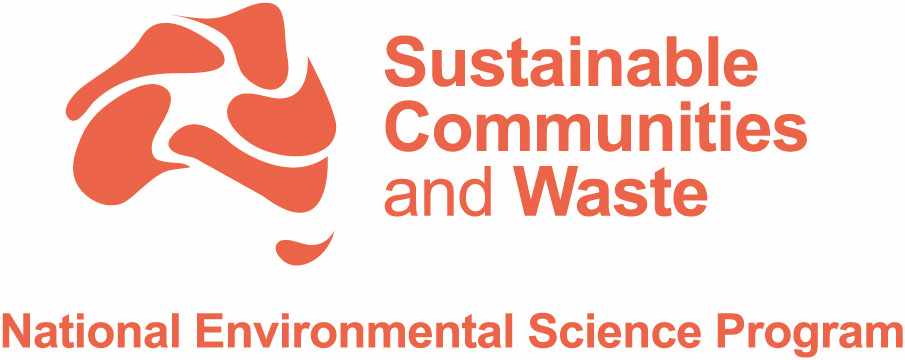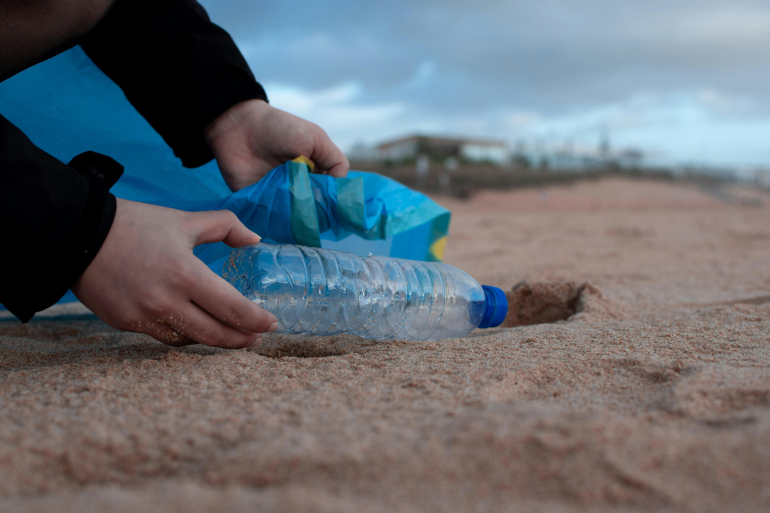Each year, World Environment Day shines a light on one of the planet’s most urgent challenges. In 2025, the focus is on beating plastic pollution - a call to action for governments, industry, communities and researchers to transform how we produce, use and dispose of plastics.
At the Sustainable Communities and Waste (SCaW) Hub, we're working across Australia to reduce the impact of plastics on people and the environment. Our research is co-designed with communities, government and industry to ensure solutions are practical, scalable and effective.
Here’s how our latest work is helping keep plastic in circularity and out of the environment.
Fit-for-Purpose Recycling Technologies
Our Fit-for-Purpose Recycling project is supporting remote, regional and urban communities to trial recycling solutions tailored to local needs. Through demonstration case studies and a co-designed Circular Economy Technology Framework, we’re helping regions find effective ways to remanufacture plastics. In 2025, we’ll refine our Annual Technology Forecast and expand tools to assess and share the effectiveness of these solutions.
Report: Technological solutions for circular economies in regional and remote Australia
Tackling Synthetic Turf Microplastics
Artificial grass is increasing in popularity but it can come at an environmental cost. Our researchers have found that synthetic turf sheds significant amounts of microplastics into surrounding environments through use, wear and weather. We’re now working to inform better product design, maintenance practices and end-of-life management to help prevent plastic pollution from these common surfaces.
Factsheet: Synthetic Turf Microplastics
Understanding Tyre and Roadwear Particles
Microscopic particles from tyres and roads are released into the air, soil and water. Our research is helping build a clearer picture of how tyre and roadwear particles contribute to microplastic pollution in Australian environments. We're mapping hotspots, identifying key sources and exploring mitigation strategies to reduce harm to ecosystems and human health.
Factsheet: Investigating Tyre and Road Wear Particles
Helping Set a National Standard on Microplastics
Effective action on microplastic pollution starts with good data. That’s why we’ve helped inform a new Australian Standard for sampling and measuring microplastics in water, Australian Standard AS ISO 24187: Principles for the analysis of microplastics present in the environment. This is a first step toward national consistency in tracking this growing problem. Our work with Standards Australia ensures that decision-makers, scientists and regulators can rely on accurate, comparable data to guide clean-up and prevention efforts.
Read: The Hub is helping set Microplastics Standards
Beating Plastics Pollution with Prof Veena Sahajwanna
Hub leader Professor Veena Sahajwalla is helping to lead important innovations in the way we repurpose plastics in Australia. Prof Veena joined The Daily to discuss what first inspired her to pursue sustainability science, the challenges of plastics pollution and what initiatives SMaRT@UNSW and the Hub are working on to help rethink our approach to plastics.
Listen: Hub leader Prof Veena Sahajwalla on Beating Plastics Pollution
As plastic pollution continues to drive negative environmental impacts, research-led solutions are more critical than ever. That's why the Hub is co-designing research with key partners and communities to help beat plastic pollution.

